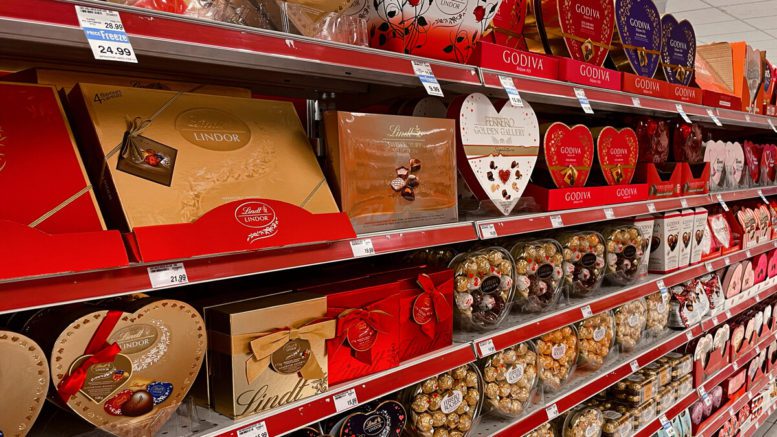Valentine’s Day is a calendar day meant to celebrate love and joy, but for many people, it is fraught with unnecessary pressure and commercialism, experts say.
“Valentine’s Day exists, and companies capitalize on it, it’s as simple as that,” said David Soberman, a professor of marketing at the University of Toronto’s Rotman School of Management.
An Ipsos poll released Friday found that about 58 per cent of Canadians believe the day has more or less been commercialized, although 59 per cent are still looking forward to celebrating.
Canadians spent an average of $93 on the holiday in 2020, according to a study by Hellosafe.ca, an insurance comparison platform. That amount decreased to $74 in 2021, and the company predicts spending will drop to $64 this year.
But Soberman expects the opposite.
“People like to have a reason to celebrate,” he said. “We would much rather celebrate love than anything else,” he said. “So, yes, there will be higher spending and significant expenses this year.”
‘You have to buy into it’
Dupe Badejo, who works at TD bank and lives in the Toronto neighbourhood of Willowdale, said it really depends on how individual people approach the occasion.
“You have to buy into it because we as a people have grown into these systems and cultures,” she said. She explained how in some social circles, it might seem “bad” if your partner doesn’t get you something for Valentine’s.
If someone does not want to buy into the system, they can’t be blamed, yet they feel pressured, she said.
How Valentine’s Day has evolved
Valentine’s Day started as a pagan festival of fertility called Lupercalia, which was later transformed into a day to celebrate love in the 14th century. In recent years, companies have capitalized on the celebration.
Hershey’s introduced special pink and red foiled Kisses chocolates in 1986, and Kraft released pink candy flavoured Kraft Dinner last year.
The Ipsos poll compared global trends in how to celebrate the holiday. On average, 47 per cent of respondents said they do not plan to celebrate because Valentine’s Day has become too commercial.
The poll is based on results from 19,987 adults aged 18 to 74 in 28 countries, including Canada. The survey was conducted online between Dec. 23, 2021, and Jan. 7, 2022, and is considered accurate to +/- 3.5 percentage points.

